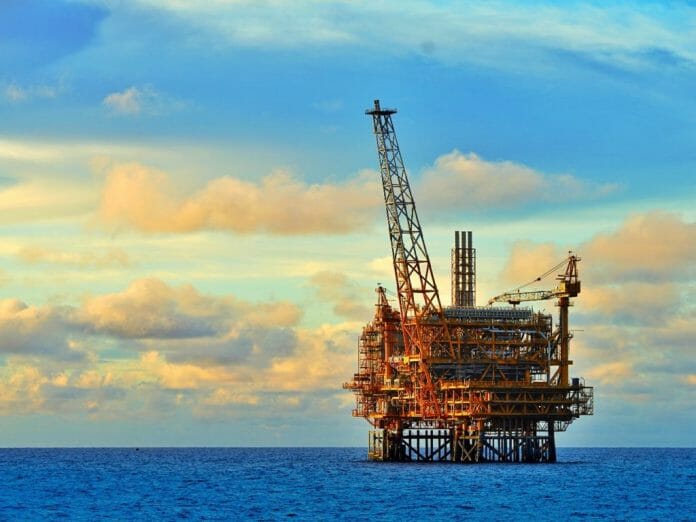European countries are preparing for a rainy day. In order to survive the energy crisis this winter, countries are looking for gas everywhere. Germany will nationalize gas giant Uniper with a historic aid agreement. Spain may shut down energy-intensive industries during peak gas consumption. The British government multi-billion-pound emergency aid package was unveiled on 21st september
Whilst the German government plans to inject about 8 billion euros into the natural gas giant Uniper SE to prevent the collapse of the German energy industry. Uniper also confirmed on September 20 that it is finalizing a plan with the government, including a capital increase of 8 billion euros, fully subscribed by the government. The German government will also buy a stake in Finland’s Fortum Oyj, its main shareholder.
It should be noted that Uniper is the largest buyer of Russian gas in Germany and is at the heart of the energy crisis. Against the background of Russia’s restrictions on energy supply to Europe, if Uniper goes bankrupt, it may have ripples in all areas of the German economy and may threaten fuel supply, so the German government is under enormous pressure to act.
In addition, on September 16, the German government officially took over the operations of Rosneft in Germany, a move that will likely intensify the conflict between the two countries and may lead to retaliation from Russia. EU’s ban on Russian oil imports to take effect later this year.
The German government said the move was to ensure the operation of three refineries in Schwedet, Karlsruhe and Warburg, which account for about 12 percent of Germany’s oil processing capacity. Regarding possible retaliatory measures, German Chancellor Scholz pointed out that we have considered the possibility of Russia cutting off the supply of crude oil, but we are ready.
But in any case, the energy crisis has hit Europe hard. According to analysts, the current energy shortage in Europe is not a short-term phenomenon and is expected to continue for at least a few years. The continuous impact of energy shortages and rising energy prices will seriously affect the normal production activities of enterprises. Businesses will not only face the pressure of a sharp increase in raw materials, but also under the effects of shortages in natural gas ie adverse affect on contract performance. As a result of this, more and more European manufacturing companies have begun to consider relocation.
To make matters worse, Europe may also have to compete with Asia for gas supplies in the coming winter. There is widespread concern that with supply disruptions in Russia this year, when demand peaks in the northern hemisphere winter, the natural gas market will struggle to meet everyone’s needs.
Japan is the world’s second largest LNG importer, and its LNG imports account for nearly one-fifth of the world’s total, second only to China. If this winter’s cold weather prompts an increase in Japan’s LNG imports, it will further tighten the global LNG market and the coal market.
Fabian Rønningen, an analyst at Norway’s Rystad Energy, also said: “The European gas market remains at risk as winter approaches… The biggest risk to Europe remains the cold winter in Northeast Asia, which will trigger two fierce competition for goods.”
As energy prices continue to soar, European manufacturing is suffering an unprecedented negative impact. Some analysts say this may benefit manufacturing in the United States, China and other countries.
Eurozone inflation also hit a record high in August. According to data released by Eurostat on the 16th, driven by the sharp rise in energy and food prices, the final annual rate of CPI in the euro zone in August recorded 9.1%, the largest increase on record, and gradually approached double digits.
Under the impact of the energy crisis, the European manufacturing industry is precarious. For example, Germany’s imports of “critical chemicals” soared by 40% year-on-year in the first half of this year, and orders for these energy-intensive industries can now only be made by foreign suppliers.
Silvia Ardagna, chief economist for Europe at Barclays, warned that the idea of Europe’s desire to achieve energy independence, hoping to get rid of cheap Russian energy, will cause its economy to face the blow of permanently rising energy costs. Europe’s industrial powerhouses Germany and Italy have gained a foothold in the global market in part because of the abundance of cheap Russian oil and gas imported through pipelines. But because of EU sanctions on Russia now, Europe will lose access to these rich resources.
With the relocation of manufacturing industries, the problem of industrial hollowing in Europe will become more serious. In the context of the economic crisis, the performance of the manufacturing industry is usually more stable than that of the service industry. Volatility will further increase and economic vitality will continue to weaken. Among them, German medium-sized companies account for almost half of the 2,700 hidden champions in the world. If those companies gradually move to the United States and other regions, the innovative activities of European companies will decrease, and the economic spillover effect and influence in the future global industrial competition pattern will also decline. Long-term weakness in the manufacturing sector will also worsen the EU’s trade balance, and cross-border capital inflows will also be reduced, which will continue to affect the euro.
To make matters worse for the future, there is no hope of a solution to the energy crisis in the short term. Peter Hoekstra, a senior researcher at the Gatestone Institute in the United States, said the current energy crisis could have been avoided if the EU had formulated a rational plan for its energy and climate goals, rather than an ideal one. Sadly, the current European energy solutions are idealistic and doomed to fail in the future. Europe seems hopeful that the restructuring of the energy market will be completed by early 2023, but the problem is that some of the initiatives announced so far by EU member states do not lay the groundwork for a viable long-term energy solution.









